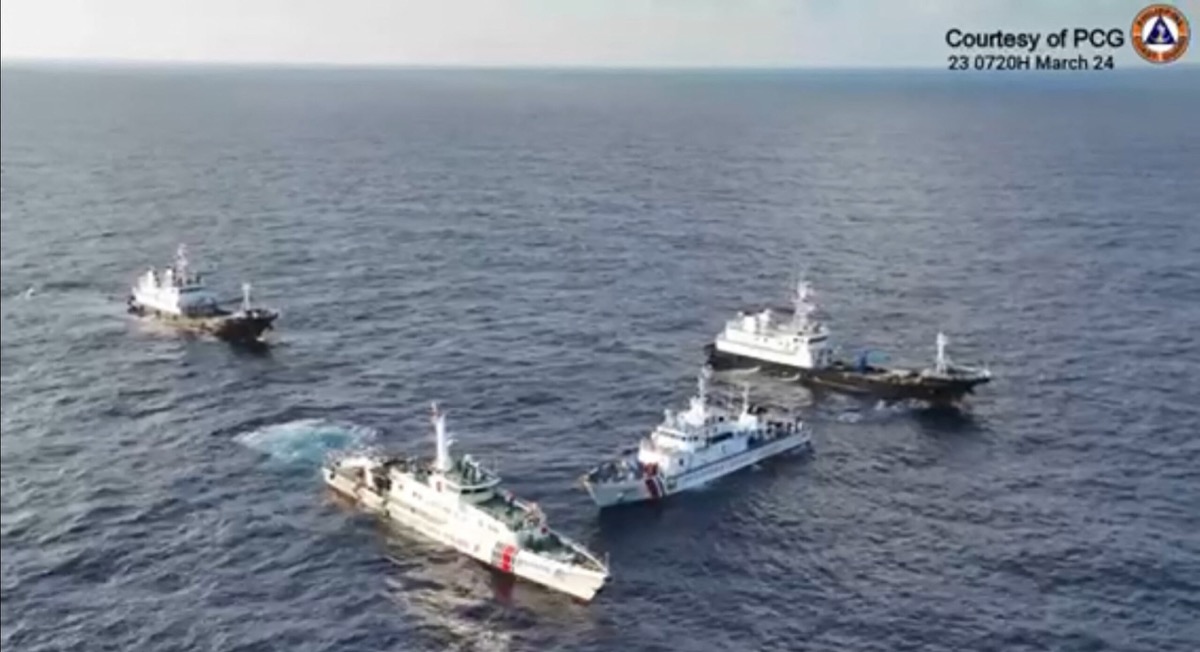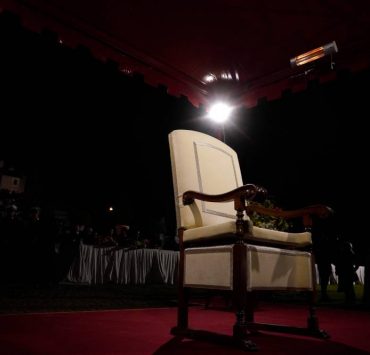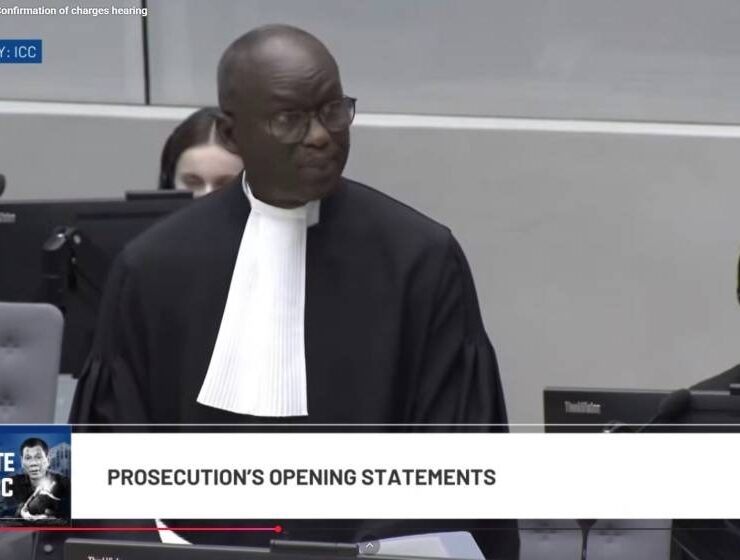WPS ‘countermeasures’ set vs China–Marcos

President Marcos said the Philippines would implement unspecified “countermeasures” to China’s “aggressive and dangerous attacks” against Filipino troops and fishermen in the West Philippine Sea.
In a strongly worded statement on Thursday, Mr. Marcos said he had given directives to the Department of National Defense (DND) and concerned government agencies to counter actions by the China Coast Guard (CCG) and its maritime militia in the West Philippine Sea, waters within the country’s 370-kilometer exclusive economic zone (EEZ).
His remarks followed the March 23 water cannon attack on a Philippine Navy supply boat, Unaizah May 4 (UM 4), that wounded three sailors who were headed to the BRP Sierra Madre, a military outpost at Ayungin (Second Thomas) Shoal.
Ayungin is about 200 km (120 miles) from Palawan, and more than 1,000 km from China’s nearest major landmass, Hainan Island.
China claims nearly the entire South China Sea, including the West Philippine Sea. But this expansive historial claim was nullified by the arbitral tribunal in 2016. Beijing has refused to recognize the arbitral award.
“Over the succeeding weeks, there shall be implemented by the relevant national government agencies and instrumentalities a response and countermeasure package that is proportionate, deliberate, and reasonable in the face of the open, unabating, and illegal, coercive, aggressive, and dangerous attacks by agents of the China Coast Guard and the Chinese Maritime Militia,” Mr. Marcos said in a statement.
Asked if he could provide details of the countermeasures, DND spokesperson Arsenio Andolong said he was “not privy to the directives of the President or the recommendations” by security officials to Mr. Marcos.“The meeting was conducted in private,” Andolong said.
Presidential Communications Office Secretary Cheloy Velicaria-Garafil said the countermeasures “will be made public in due time.”Mr. Marcos assured Filipinos that he was in constant communication with “allies, partners and friends” of the Philippines in the international community regarding China’s actions in the West Philippine Sea.“They have offered help to us on what the Philippines requires to protect and secure our sovereignty, sovereign rights, and jurisdiction while ensuring peace and stability in the Indo-Pacific,” he said.
According to Mr. Marcos, he had given them “our requirements and we have been assured that they will be addressed.”“We seek no conflict with any nation, more so nations that purport and claim to be our friends but we will not be cowed into silence, submission, or subservience,” he said. “Filipinos do not yield.”
In a statement on Friday, the DND said the Philippines would never seek a fight but would not back down to China’s oppressive actions against Filipino troops and fishermen.
“The world has seen and knows that the Filipino people are not aggressors,” the DND said. China’s Ministry of National Defense spokesperson Wu Qian had blamed Manila’s “harassment and provocations” as the “immediate cause” of the escalating tensions in the South China Sea.Uncivilized
But the DND said that the Chinese defense ministry statement “clearly reflects their isolation from the rest of the world on their illegal and uncivilized activities in the West Philippine Sea.”
It also showed China’s inability “to conduct open, transparent and legal negotiations,” it added.
“Their repertoire consists only of patronizing and, failing that, intimidating smaller countries,” the DND said.
“We do not yield. We are Filipinos,” it said.
The National Defense College Alumni Association also denounced the China Coast Guard’s use of water cannons against Philippine vessels.
“Clearly, its rogue actions that spring from its ‘might is right doctrine’ have become a menace to regional peace and amity,” the group said.
“Intimidation and uncivilized acts are now part of China’s global brand, with its Coast Guard as its leading endorser,” it added.
The association stood by the government’s resolve “not to yield to China’s unprovoked attacks inside our territory.”
The March 23 water cannon attack was the latest against Filipino supply boats headed to the Sierra Madre, a World War II-era ship that was intentionally grounded at Ayungin in 1999 to serve as a military outpost.
In addition to wounding three Navy personnel, the water cannon blasts from two CCG ships also caused serious damage to UM 4, a wooden vessel.
Despite consultation
Prior to the water cannon blasts, one of the CCG ships made a “dangerous maneuver of crossing the bow” of UM 4. It also used “reverse blocking maneuver” against the supply boat as it approached Ayungin, causing a near collision, the Armed Forces of the Philippines said.
On March 5, the same Filipino supply boat was also the target of a water cannon assault, wounding four sailors and causing minor damage to UM 4.
The two water cannon attacks occurred despite the creation of a Bilateral Consultation Mechanism (BCM) between Manila and Beijing in January, which was intended to “deescalate the situation” and “calmly deal with incidents … through diplomacy,” according to the Department of Foreign Affairs.
In its statement, Beijing’s defense ministry blamed “the provocations by the Philippine side” for the increased tensions in the South China Sea.
“Relying on the backing of external forces … the Philippine side has frequently infringed on rights and provoked and created trouble at sea, as well as spreading false information to mislead the international community’s perception of the issue, which is, so to speak, going further and further down a dangerous road,” it added.The United States, a treaty ally of the Philippines, has led a chorus of support for the Southeast Asian country in response to Chinese actions.
US Defense Secretary Lloyd Austin III repeated the United States’ “ironclad” commitment to its longtime ally in a call with his Filipino counterpart Gilberto Teodoro Jr. on Wednesday.
The Philippines has one of the weakest militaries in the region. —WITH REPORTS FROM INQUIRER RESEARCH, AFP AND REUTERS INQ





















